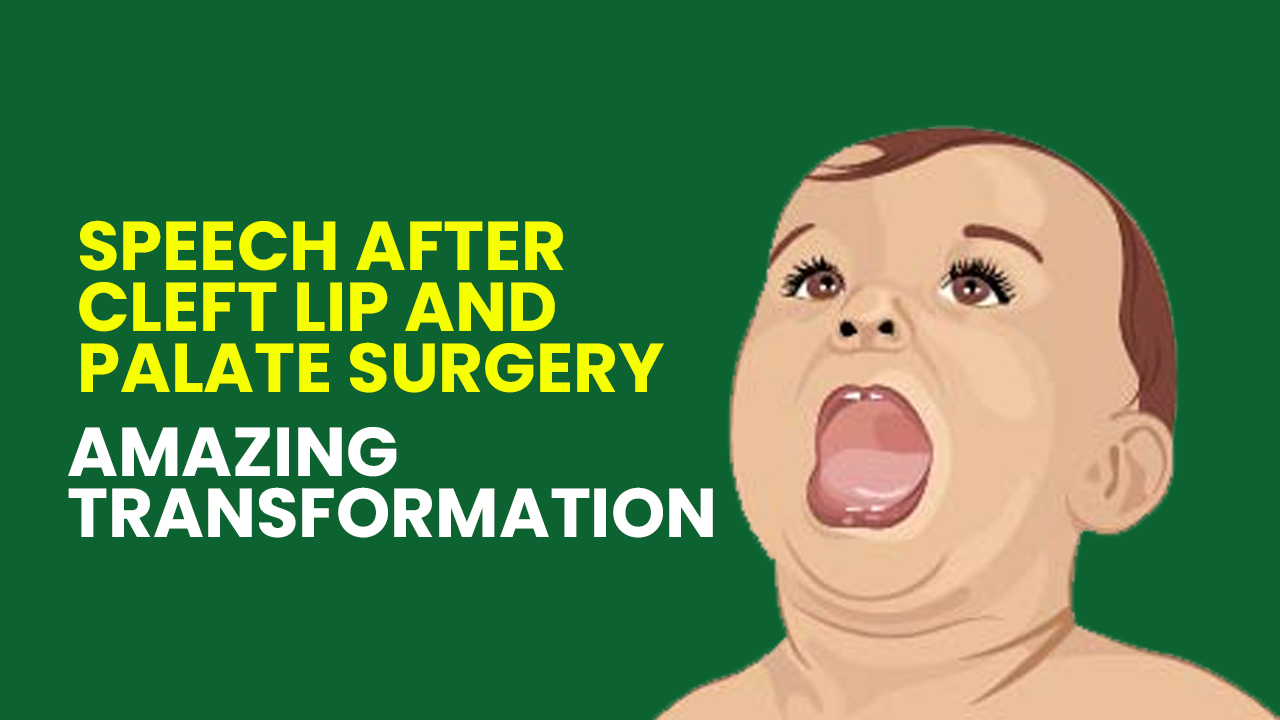Best Speech After Cleft Lip And Palate Surgery In India
Explore speech enhancement post-cleft surgery in India. Tips for aiding children's speech recovery and the significant benefits of treatment.

In this blog post, we will be discussing speech after cleft lip and palate surgery in India. We will go over what to expect and how to help your child through this process. This is an important topic for anyone who has or will be having this type of surgery, so we hope you find this information helpful.
What to Expect After Surgery
Your child’s speech may differ after surgery to repair a cleft lip and palate. These changes are usually temporary. Your child may speak more slowly and with more errors than before surgery. This is because the muscles needed for speech are often affected by the cleft. It takes time for these muscles to heal and work correctly again.
The difference in sound is usually due to swelling in the area around the nose and mouth. The swelling goes down over time, and the voice will sound more like its old self again.
You can help your child by:
• Encouraging them to slow down when they talk
• Asking them to say words and sentences again if you don’t understand them
• Helping them practice saying hard sounds at home
Your child’s doctor or speech therapist can give you more ideas on how to help your child with their speech after cleft lip and palate surgery in India.
Benefits of Treatment
Cleft lip and palate surgery have many benefits. One of the most important benefits is that it can improve your child’s speech. This type of surgery can also make it easier for your child to eat and breathe. Additionally, it can improve the way your child looks. All of these things can lead to a boost in confidence, which is extremely important during childhood development.
It’s important to keep in mind that each child responds differently to a treatment. You’ll need to consult with your child’s doctor or best cleft surgeon to discuss what you can expect from treatment in your specific case
Speech After Cleft Lip And Palate Surgery In India
Some children with a cleft palate may require extra surgery to improve their speech. Most kids have their primary palate repaired around 1-year-old. After this initial repair, they start a rigorous course of speech therapy in India with a trained cleft lip and palette speech pathologist who follows the patient during speeches developmental stages.
If their speech therapist determines that they are unable to produce certain sounds, or if they are thought to lack the necessary structure to make them, surgical treatment may be recommended. If surgery is suggested, it’s usually done between the ages of 3 and 5 so that children can produce all of the sounds needed when they start school.
Typically, compared with primary palatal surgery, speech therapy in India is a less invasive procedure, resulting in decreased healing time and lower hospitalization times. These patients are generally kept overnight because they are on the airway and involve the palate. Each kid’s speech operation will be determined by what kind of natural architecture he or she has at his or her disposal for producing speech.
The surgeon and the speech therapist will evaluate which studies are necessary to figure out what this architecture looks like so they may arrange the next operation appropriately. Following this secondary speech operation, speech therapy in India is continued to help them learn how to make the proper sounds using their newly formed palate.
Speech surgery and treatment in India are critical elements of cleft palate surgery. They aren’t always required, but it’s important that families be aware that this might necessitate future follow-up care.
We hope that this blog post has helped give you a better understanding of speech after cleft lip and palate surgery in India. If you have any further questions, please don’t hesitate to reach out to us or consult with your child’s doctor or speech therapist. Cleft lip and palate surgery can have many benefits, so we encourage you to explore all of the options available to you and your family.
Thanks for reading!


